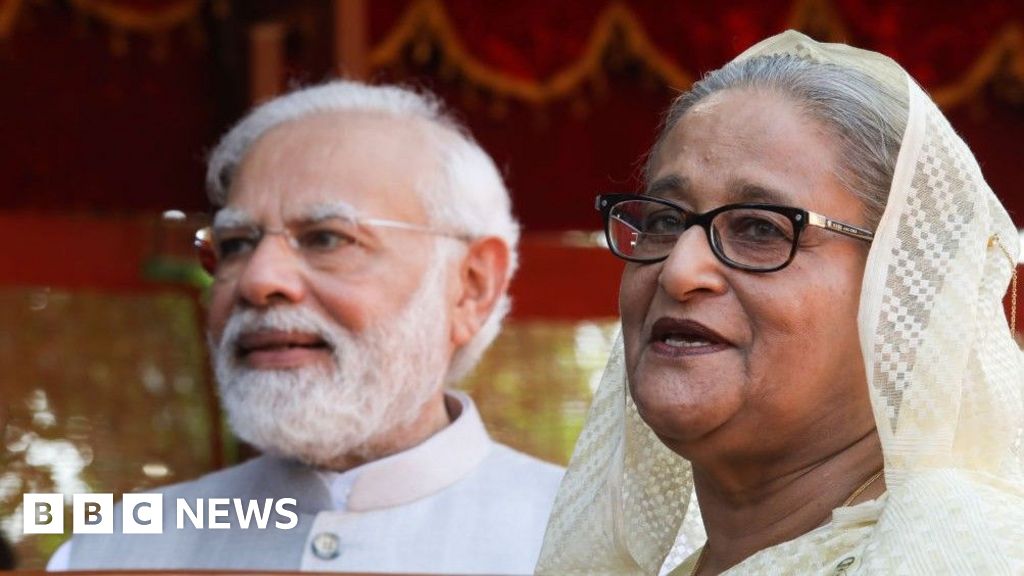India’s longstanding friendship with Bangladesh’s former leader Sheikh Hasina has been both strategically valuable and politically costly. Over her 15 years in power, Hasina delivered key outcomes that India highly values in its neighborhood: political stability, enhanced connectivity, and a partner willing to align with India’s interests rather than those of China. However, the current political upheaval in Bangladesh has dramatically complicated this relationship.
Hasina, who sought refuge in India following mass protests in Bangladesh in 2024, has been sentenced to death by a special tribunal in her home country. The charges relate to crimes against humanity connected to her harsh crackdown on student-led protests, which ultimately led to her removal from power. These protests and the ensuing political crisis paved the way for Nobel laureate Muhammad Yunus to become the head of an interim government, with new elections scheduled for early next year.
This turn of events has created a diplomatic quandary. Bangladesh’s interim government demands Hasina’s extradition to face her sentence, but India has so far refused to comply. This refusal effectively renders the death sentence unenforceable. What was initially intended as a humanitarian gesture on India’s part—offering asylum to a former ally—is now evolving into a prolonged and uncomfortable test of India’s willingness to support its old friend, and how much diplomatic cost it is prepared to bear.
Michael Kugelman, an expert on South Asia, outlines four difficult options facing India. First, India could extradite Hasina back to Bangladesh, a move it strongly resists. Second, it could maintain the current status quo of harboring her, though this becomes increasingly risky politically, especially once the new Bangladeshi government takes office. Third, India could attempt to pressure Hasina into silence, preventing her from making public statements or interviews; however, this is unlikely given her continued leadership of her Awami League party, and India is unlikely to enforce such restrictions. Finally, India could try to find a third country willing to accept Hasina as a guest, but few nations would agree given the legal and security issues involved.
Extradition remains an unthinkable option because Hasina is viewed as a close friend by both India’s ruling party and opposition. India prides itself on loyalty to its friends, making any betrayal politically unpalatable. This situation is particularly awkward for India due to the depth and asymmetry of its relationship with Bangladesh, rooted in India’s foundational role in Bangladesh’s independence in 1971.
Today, Bangladesh is India’s largest trading partner in South Asia, and India is Bangladesh’s biggest export market in Asia. Trade between the two countries reached nearly $13 billion last year, with Bangladesh running a large trade deficit and heavily relying on Indian raw materials, energy supplies, and transit routes. Over the past decade, India has extended $8 billion to $10 billion in concessional credit, provided duty-free access to selected Bangladeshi goods, built cross-border rail links, and supplies electricity as well as oil and LNG through its grids and ports. These extensive ties create a relationship neither side can easily abandon.
Sanjay Bhardwaj, a professor of South Asian studies at Delhi’s Jawaharlal Nehru University, emphasizes the “complex interdependence” between the two countries, noting how Bangladesh depends on India for critical resources like water and electricity. This interdependence makes cooperation essential for Bangladesh’s functioning.
However, the interim government led by Muhammad Yunus is actively seeking to rebalance Bangladesh’s external relationships. According to political scientist Bian Sai, writing for the National University of Singapore, Yunus’s early months in office have seen a burst of diplomatic outreach aimed at “de-Indianising” Bangladesh’s foreign policy. This includes cancelling judicial exchanges with India, renegotiating Indian energy contracts, slowing down India-led connectivity projects, and publicly seeking strategic partnerships with China, Pakistan, and even Turkey. These moves clearly signal Bangladesh’s intent to hedge its bets and reduce its dependence on India.
Public sentiment in Bangladesh reflects this shift. A survey conducted by the Dhaka-based Centre for Alternatives found that over 75% of Bangladeshis viewed relations with China positively, while only 11% expressed a positive view of ties with India. This sentiment is a reaction to India’s perceived support for Hasina’s increasingly authoritarian rule in recent years, and a growing perception of India as an overbearing neighbor.
Despite political fluctuations, Professor Bhardwaj points out that economic and cultural ties between India

